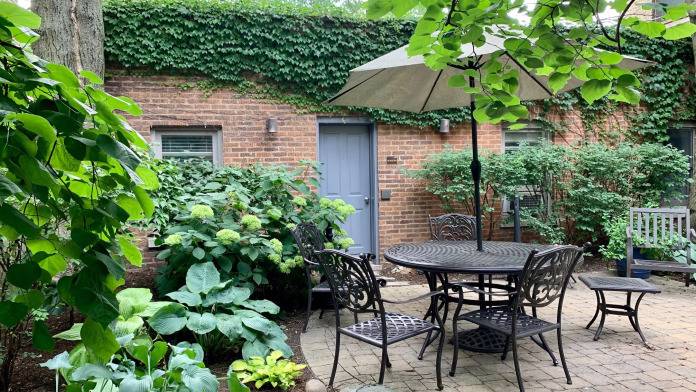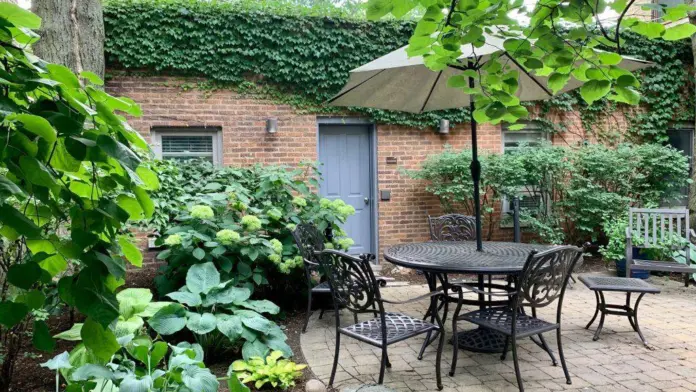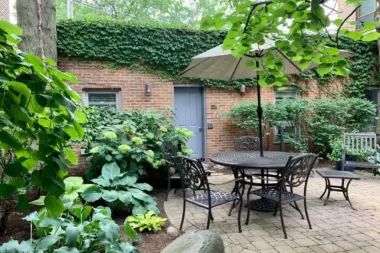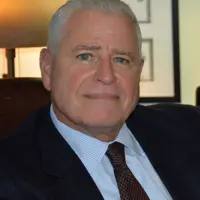If you are a parent, please read all the negative reviews with the knowledge that Yellow Brick has deleted, kicked off the site and overwhelmed the site with dubious data, and fake reviews. Please take these honest reviews, written by brave patient survivors and multiply th ...
About Yellowbrick Consultation and Treatment Center
Yellowbrick has established a clinical philosophy and treatment model, which integrates psycho-neurobiology, developmental psychology and in-depth psychotherapy. Yellowbrick recognizes and addresses the unique challenges of the emerging adult population through programs that emphasize multi-specialty evaluation, therapeutic residences, research-based strategies and life-skills interventions. At Yellowbrick, their treatment philosophy is guided by research findings that show that enduring success is facilitated by working alongside emerging adults coping with actual life experiences in “real time,” with a professional presence supporting the development of skills required to navigate the challenges of life.
The Yellowbrick Consultation and Treatment Center (CTC) provides comprehensive and integrated outpatient diagnostic and treatment services including: The Life Strategies Program (LSP), Specialty Programs: Trauma Recovery, Eating Disorders, & Addictions, a Center for Clinical Neuroscience: dTMS (Deep Transcranial Magnetic Stimulation); Neuro-feedback; ReCognition; Collaborative Psychopharmacology & Nutraceuticals; Direct Transcranial Stimulation (for anxiety and sleep).
Latest Reviews
Our values are Integrity, Excellence in Innovation, and Value through Outcome. Honest, transparent, and collaborative relationships, especially in the face of conflict and tension, are the foundation for the Healing process.
Please visit our website www.yellowbrickprogram.com and review our 19-year Outcome Report in the Knowledge Center as well as Testimonial Booklet.
Please be aware that State of Illinois and Federal laws (HIPAA) prohibit us from acknowledging whether an individual leaving a review has ever been in treatment or to address regrettable grievances in public venues. We encourage candid, direct, and personal conversations about individual’s experience. I, Dr. Jesse Viner, CEO & Chief Medical Officer, can be reached at 847-869-1500 ext. 230.
Our values are Integrity, Excellence in Innovation, and Value through Outcome. Honest, transparent, and collaborative relationships, especially in the face of conflict and tension, are the foundation for the Healing process.
Please visit our website www.yellowbrickprogram.com and review our 19-year Outcome Report in the Knowledge Center as well as Testimonial Booklet.
Please be aware that State of Illinois and Federal laws (HIPAA) prohibit us from acknowledging whether an individual leaving a review has ever been in treatment or to address regrettable grievances in public venues. We encourage candid, direct, and personal conversations about individual’s experience. I, Dr. Jesse Viner, CEO & Chief Medical Officer, can be reached at 847-869-1500 ext. 230.
Rehab Score
Gallery








Other Forms of Payment
Private insurance refers to any kind of healthcare coverage that isn't from the state or federal government. This includes individual and family plans offered by an employer or purchased from the Insurance Marketplace. Every plan will have different requirements and out of pocket costs so be sure to get the full details before you start treatment.
Self-pay involves paying for treatment out of your own pocket. You can use savings or credit, get a personal loan, or receive help from family and friends to fund your treatment. If you don't have insurance or your insurance plan doesn't cover a specific program, self-pay can help ensure you still get the care you need.
Medicare is a federal program that provides health insurance for those 65 and older. It also serves people under 65 with chronic and disabling health challenges. To use Medicare for addiction treatment you need to find a program that accepts Medicare and is in network with your plan. Out of pocket costs and preauthorization requirements vary, so always check with your provider.
Medicaid is a state based program that helps lower-income individuals and families pay for healthcare. Medicaid covers addiction treatment so those enrolled can use their coverage to pay for rehab. When a program accepts Medicaid the client often pays very little or nothing out of their own pocket.
Addiction Treatments
Levels of Care
Outpatient Programs (OP) are for those seeking mental rehab or drug rehab, but who also stay at home every night. The main difference between outpatient treatment (OP) and intensive outpatient treatment (IOP) lies in the amount of hours the patient spends at the facility. Most of the time an outpatient program is designed for someone who has completed an inpatient stay and is looking to continue their growth in recovery. Outpatient is not meant to be the starting point, it is commonly referred to as aftercare.
Residential treatment programs are those that offer housing and meals in addition to substance abuse treatment. Rehab facilities that offer residential treatment allow patients to focus solely on recovery, in an environment totally separate from their lives. Some rehab centers specialize in short-term residential treatment (a few days to a week or two), while others solely provide treatment on a long-term basis (several weeks to months). Some offer both, and tailor treatment to the patient's individual requirements.
Intensive Outpatient programs are for those who want or need a very structured treatment program but who also wish to live at home and continue with certain responsibilities (such as work or school). Members are encouraged to participate in evening IOP consists of 3 hours of group treatment divided into 3 interrelated components: ASP Mindulness, ASP Education and Discussion Group, and ASP Interpersonal Group Therapy.
12-step programs are addiction recovery models based on Alcoholics Anonymous (AA). A number of substance abuse programs (including some drug and alcohol rehab centers) use the 12 steps as a basis for treatment. Beginning steps involve admitting powerlessness over the addiction and creating a spiritual basis for recovery. Middle steps including making direct amends to those who've been hurt by the addiction, and the final step is to assist others in addiction recovery in the same way. 12-Step offshoots including Narcotics Anonymous (NA), Cocaine Anonymous (CA), Dual Recovery Anonymous (DRA), Sex and Love Addicts Anonymous (SLAA) and Gamblers Anonymous (GA).
Sober Living Houses (SLHs), aka sober homes or halfway houses, are safe, substance-free, supportive living facilities for those recovering from substance abuse. Ideal for those who've just been through inpatient or outpatient treatment, SLHs are supervised environments with rules that support sobriety, such as curfews, shared chores, and therapeutic meetings. Residents are also often trained on life skills and coping skills to make it easier to transition into society. SLHs also provide a strong sense of community that can lead to the kind of deep and lasting connections with other sober individuals that supports a new, healthy lifestyle.
As a flexible option, a partial hospitalization program (PHP) is tailored for those who don't require 24-hour care. PHP treatment can include daily therapeutic sessions and services such as relapse prevention and medication management. Based on your needs, PHP treatment duration can average 90 days and require a minimum of 20 hours of commitment weekly. While a partial hospitalization program typically requires a commute, telehealth may be available. PHP treatment costs can vary but are often covered by most insurance.
Addiction treatment often begins with 24-hour clinical care in Illinois. This supervised setting is the best environment for detox.where medical staff can provide 24/7 supervision and responsive care as your body is cleansed of addictive substances. Doctors may prescribe antagonist and partial agonist drugs to counteract the effects of drugs or alcohol, or they may slowly taper down dosages of substances to end physical dependence on the drug.
During the medically supervised detox process, licensed medical professionals monitor your vitals and administer medications meant to help alleviate the physical symptoms of withdrawal. The process can take between five and seven days, although the actual length depends on your individual needs. In most cases, medically assisted detox is partially, if not fully, covered by insurance.
Treatments
The goal of treatment for alcoholism is abstinence. Those with poor social support, poor motivation, or psychiatric disorders tend to relapse within a few years of treatment. For these people, success is measured by longer periods of abstinence, reduced use of alcohol, better health, and improved social functioning. Recovery and Maintenance are usually based on 12 step programs and AA meetings.
Drug rehab in Illinois is designed to help people recover from addiction to a number of substances. The length of each program and its intensity tend to vary, and the plan of care is based on your individual needs.
Many of those suffering from addiction also suffer from mental or emotional illnesses like schizophrenia, bipolar disorder, depression, or anxiety disorders. Rehab and other substance abuse facilities treating those with a dual diagnosis or co-occurring disorder administer psychiatric treatment to address the person's mental health issue in addition to drug and alcohol rehabilitation.
The Addictions Services Program is designed to meet the needs of individuals with a history of addiction or problematic use of drugs and/or alcohol. Yellowbrick’s relational model emphasizes the primary importance of interpersonal relationships for mental health. We understand that individuals with addiction have replaced their primary attachment to individuals with a relationship with the drugs/alcohol. This group helps individual’s identify the needs they have in relationships and obstacles to engaging effectively interpersonally.
Opioid rehabs specialize in supporting those recovering from opioid addiction. They treat those suffering from addiction to illegal opioids like heroin, as well as prescription drugs like oxycodone. These centers typically combine both physical as well as mental and emotional support to help stop addiction. Physical support often includes medical detox and subsequent medical support (including medication), and mental support includes in-depth therapy to address the underlying causes of addiction.
Programs
Adult rehab programs include therapies tailored to each client's specific needs, goals, and recovery progress. They are tailored to the specific challenges adult clients may face, including family and work pressures and commitments. From inpatient and residential treatment to various levels of outpatient services, there are many options available. Some facilities also help adults work through co-occurring conditions, like anxiety, that can accompany addiction.
Young adulthood can be an exciting, yet difficult, time of transition. Individuals in their late teens to mid-20s face unique stressors related to school, jobs, families, and social circles, which can lead to a rise in substance use. Rehab centers with dedicated young adult programs will include activities and amenities that cater to this age group, with an emphasis on specialized counseling, peer socialization, and ongoing aftercare.
Recovery is most successful when clients feel accepted and validated by their peers and treatment providers. Facilities that offer LGBTQ-inclusive programming are committed to creating a safe space where everyone can grow and recover without fear of judgment or discrimination. They will have dedicated policies in place to create a safe and supportive environment that fosters free expression.
Clinical Services
Cognitive Enhancement Therapy (CET) is a computerized cognitive rehabilitation training program for adults with psychiatric problems who are stabilized and maintained on medication and not abusing substances. Through CET, participants learn to shift their thinking from rigid serial processing to a more generalized processing of the core essence or gist of a social situation and a spontaneous abstraction of social themes.
Dialectical Behavior Therapy (DBT) is a research supported treatment which combines cognitive behavioral theory and methods with Eastern meditative principles and practices. DBT addresses problems in regulating emotions, painful or maladaptive patterns of thinking and self defeating, self injuring or impulsive behavior.
ASP Interpersonal Group Therapy provides an open forum for members to explore the experiences and feelings associated with substance abuse and the struggles that are often associated with early recovery. This group promotes creating a sense of safety within which peers can share their fears and struggles and work together to try and find meaning and fulfillment in life without mind altering substances. In this interpersonal process group the focus is on relationships among members as well as the content of what is discussed.
In individual therapy, a patient meets one-on-one with a trained psychologist or counselor. Therapy is a pivotal part of effective substance abuse treatment, as it often covers root causes of addiction, including challenges faced by the patient in their social, family, and work/school life.
This evening group IOP is available separately for men and women who have experienced interpersonal trauma involving violence and/or the extreme or persistent violation of emotional, physical, or sexual boundaries. Within the context of the latest neurobiological understanding of trauma and traumatic attachment, the impact of trauma on the body, and the psychology of mindfulness, this group focuses on how trauma influences one’s self and interpersonal relationships in the present.
Each family is assigned a Family Liaison, usually the Vice President of Clinical Operations, who works closely with the family to provide support and information about the program at Yellowbrick while honoring the boundaries of the emerging adult. This Family Liaison is available by phone or e-mail to answer questions and assist the family in understanding and negotiating the family’s role in the treatment of their emerging adult. This often involves introducing to the family areas within which change within parent communication or relatedness is viewed as facilitating of growth within the emerging adult at Yellowbrick. The Vice President of Clinical Operations will also work with the family to schedule Family Rounds and other prescriptive family meetings.
This group focuses on strengthening the emerging adult’s core life competencies. Group members identify barriers creating resistance to change as the first step towards self-efficacy. Applying that knowledge, members actively engage in activities designed to foster personal responsibility, motivation, and commitment. This group combines didactic, discussion, and experiential modes of learning.
Recovery is most often enhanced when patients journal their nutrition, activity and emotions. This assists the internalization of mindful connectedness and centering. These are reviewed individually within consultations with the dietitian, and with peers in the Goals and Strategies Dinner Group. Patients are weighed weekly. Weight restoration is defined as 95% of individually determined maintenance weight, as this also is associated with greater enduring recovery as well as improved fertility.
Art Therapy provides a safe and structured environment where individuals can explore emotions with both traditional and non-traditional media. Emphasis is placed on the creative process rather than the product. Unconscious feelings and internal conflicts may be brought to the surface and resolved symbolically. The art therapist facilitates dialogue with one’s own art.
Experiential therapy is a form of therapy in which clients are encouraged to surface and work through subconscious issues by engaging in real-time experiences. Experiential therapy departs from traditional “talk therapy” by involving the body, and having clients engage in activities, movements, and physical and emotional expression. This can involve role-play or using props (which can include other people). Experiential therapy can help people process trauma, memories, and emotion quickly, deeply, and in a lasting fashion, leading to substantial and impactful healing. Art Therapy with Betty Wolff MA, ATR emphasizes the importance of accessing emotions through non-verbal experiences and emotionally arousing techniques, which focus on the relationship of the body, self and the eating disorder.
Staff & Accreditations
Staff

Jesse Viner, MD
CEO & Chief Medical Officer

Laura Viner, PhD
Director of Research

David H. Baron, MD
Medical Director

Bryn Jessup, PhD
Director of Family Services and Systems

Michael Losoff, PhD
Director of Professional Development

Pete Myers, Psy.D
Director of Group and Therapeutic Community

Michael Gilbert
Director of the ResidenceMA, MSW
Accreditations

The Joint Commission, formerly known as JCAHO, is a nonprofit organization that accredits rehab organizations and programs. Founded in 1951, the Joint Commision's mission is to improve the quality of patient care and demonstrating the quality of patient care.
Joint Commission Accreditation: Yes
Accreditation Number: 584939
Contact Information
1560 Sherman Avenue
Suite 400
Evanston, IL 60201